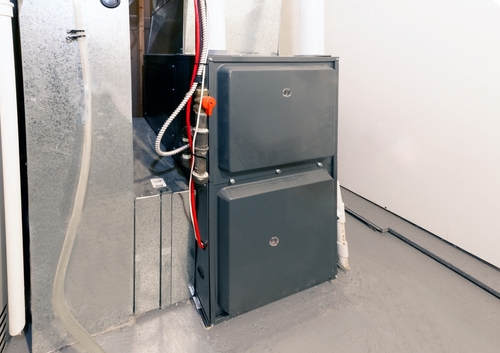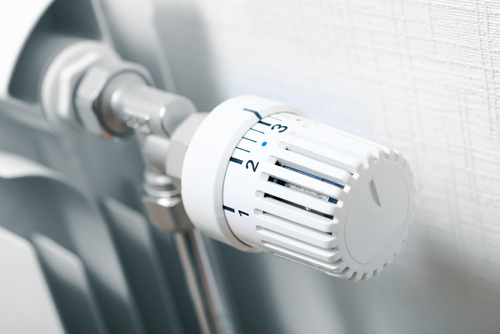February 15, 2024
7 Energy Efficient Heating Upgrades
Upgrading your home’s heating system is one of the best investments you can make. Modern heating systems are not only more efficient but also provide more consistent warmth. Warmer homes, less energy use and lower heating bills are all homeowner wins.
As your local home heating experts, we want to provide you with the best and latest information. Let’s look at how heating efficiency is measured and then cover upgrades that could improve efficiency in your home no matter what kind of heat you have.
How Heat Efficiency is Measured
Heating system efficiency is measured as annual fuel utilization efficiency (AFUE). This rating, required by the federal trade commission, measures how efficiently an appliance converts fuel to heat over the course of a year. You’ll notice this rating on all new furnaces and boilers. It is essentially a ratio of the fuel used compared to the heat put out. So, a natural gas boiler with a 75% AFUE rating means that 75% of the fuel used was turned into heat and 25% was lost and vented out of the home.
What is a Good AFUE Rating?
The Department of Energy currently requires a minimal AFUE of 80%. A good efficiency rating ranges around 90%, which most modern boilers and furnaces exceed. Any appliance with the “Energy Star” logo will be rated as high-efficiency. Keep in mind that an AFUE rating doesn’t take into account heat loss during transfer as warm air is piped through air ducts or disappears through uninsulated walls.
Electric furnaces and boilers have efficiencies between 95-100% because no heat is lost through the flue. However, rising electrical costs make these appliances more expensive for homeowners. Heat pumps are becoming a more viable source of electric heat and are covered below.
7 Home Heating Upgrades to Improve Efficiency
Now that you understand what constitutes high-efficiency heating, let’s look at some practical ways to achieve it in your home.


1. Install a Newer Furnace Model
While older furnace models have a 56% to 70% efficiency rating, newer furnace models are designed for optimal efficiency. Look for units with a high AFUE rating (90%+) as discussed above. A higher rating means more of your energy dollars contribute directly to heating your home instead of going out the chimney. If you’re unsure what size or type of furnace you need, an expert from Applewood can advise you.
2. Switch to a Heat Pump
Heat pumps are an excellent, environmentally-friendly solution. They work by transferring heat rather than generating it, which makes them incredibly efficient. They run on electricity vs. natural gas and are integral to Denver’s Net Zero Plan. Read our blog on heat pumps vs HVAC to weigh the pros and cons of these home heating systems.
3. Retrofit or Upgrade Your Boiler
If your home has a boiler system, consider retrofitting it with more efficient features or upgrading to a more efficient model. When assessing retrofits like vent dampers, intermittent ignition devices or derating gas burners, weigh the cost against a newer model. Like newer furnaces, modern boilers are designed to use less fuel and convert more of that fuel into usable heat.


4. Install Smart Controls on Radiators
For homes with radiator heating, installing programmable radiator valves allows for better control of each radiator. You’ll experience more efficient heating with the option for personalized comfort in each room.
5. Practice Zoning Control
By creating heating zones, you can control the temperature in different areas of your home independently. This not only leads to energy savings but enhanced comfort while your heating system works less. Zoned heating is especially effective in larger homes or homes with unused rooms. Mini splits in conjunction with a heat pump are a cost-effective way to manage your zones.
6. Smart Home Integration
Connect your heating system with other smart home devices for a fully integrated approach. For instance, smart blinds can be programmed to open during sunny winter days to allow natural heat and close at night to retain it. As home technologies advance, the opportunity for more efficiencies increases.
7. Get a Professional Consultation
The Applewood team can provide personalized advice on which system or upgrade would make the biggest impact in your home. We can also assist with installation and maintenance so that your system runs efficiently for years to come.
Efficient Home Heating in Colorado
There’s no single most efficient way to heat a home but any of these upgrades paired with helpful home heating tips can have a significant net result. Contact Applewood today for expert advice on how to keep your home warm with budget-friendly investment strategies that improve your home value.


